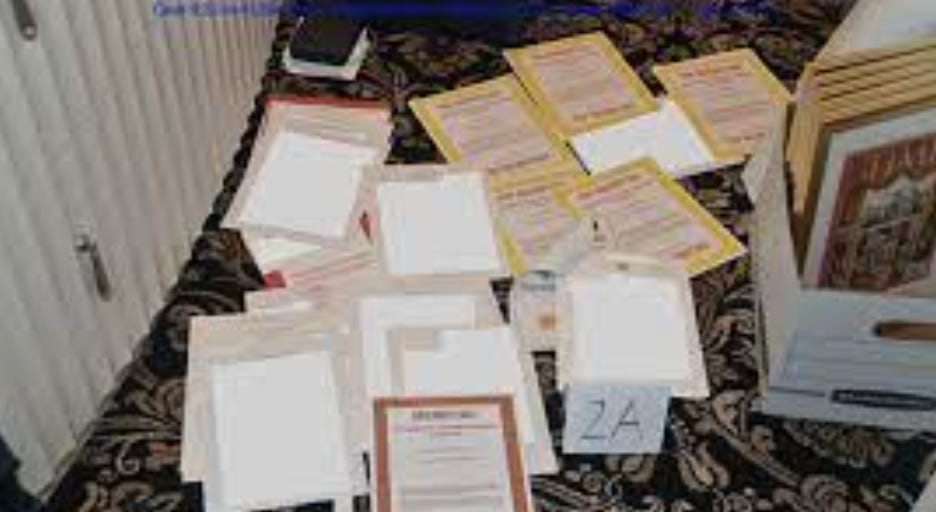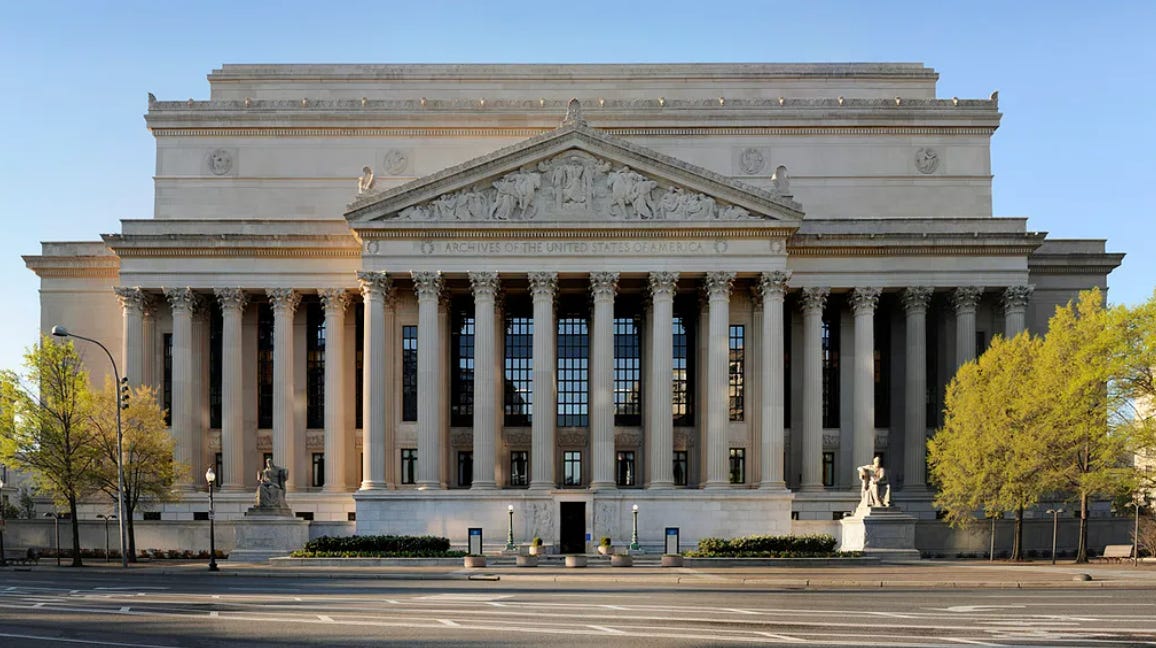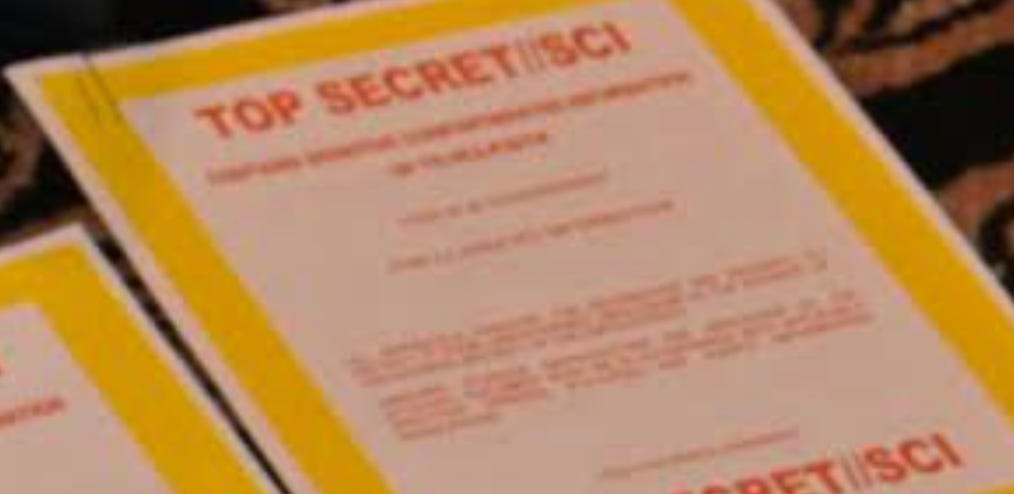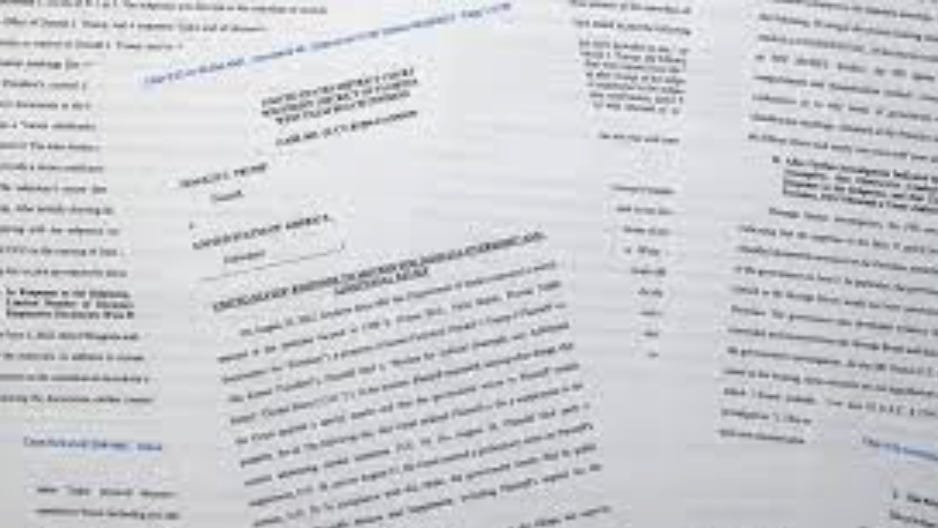(Dobbs) The Ever-Changing Excuses From Donald Trump
His inconsistency itself is almost enough to implicate and indict.
It’s enough to make you dizzy.
In the less-than-four-weeks since the FBI seized secret and unsanctioned documents from Donald Trump’s home at Mar-a-Lago, the one-time president and his apologists have taken the nation on a roller-coaster ride of excuses. Dishonest, duplicitous, capricious, even contradictory excuses. That’s what a con man does.
You’ve probably been following it in bits and pieces, but at this stage it might be instructive to lay it all out in one fell swoop.
The first thing we heard from Trump’s people about the August 8th search was that his home was “under siege, raided and occupied by a large group of FBI agents.” Trump himself called it “unAmerican, unwarranted, and unnecessary.” Basically what he tried to feed us was that old bromide, “Nothing to see here,” because there was nothing important ever stored at Mar-a-Lago.
First fact check: it was not “unAmerican” or “unwarranted.” The FBI was executing a legal search warrant, approved by a federal judge who had to conclude that there was probable cause that a crime had been committed— serious stuff like obstruction, theft or destruction of government records, and violations of the Espionage Act. And it wasn’t unnecessary. As we learned last week, there was plenty to see there: 31 documents marked confidential, 54 marked secret, and 18 marked top secret.
That might explain why one of his lawyers shamelessly told Fox News shortly after the search, “I'm concerned that they may have planted something. You know, at this point, who knows?” Trump then built on that ugly smear, complaining that the FBI did not allow his people to observe the search to “see what they were doing, taking or, hopefully not, ‘planting’.”
Next fact check: the FBI doesn’t have to let anyone watch, and usually doesn’t.
Then, in case that didn’t take root, the Trump team turned to a new one: who doesn’t take work home with them? “As we can all relate to,” one of his lawyers said, “everyone ends up having to bring home their work from time to time. American presidents are no different.”
Except… another fact check here… he’s not president any more. TV host Trevor Noah said it best: “It's not 'taking work home with you' if you no longer have the job.” And his “work” belongs to the nation. Under the provisions of the Presidential Records Act, it is supposed to go to the National Archives, not to a country club in Florida.
Then they put the roller-coaster in high gear.
One of Trump’s aides went on Fox and scapegoated the government: “The GSA has since come out, the Government Services Administration (my note: it’s the General Services Administration, and it oversees the National Archives), and said they mistakenly packed some boxes and moved them to Mar-a-Lago.”
Except… fact check again… the GSA has publicly said they didn’t. They oversaw the shipping of sealed cartons from the White House to Mar-a-Lago, but they didn’t pack them.
So Fox News tried to help Trump with a new “out”: he was so caught up in the “chaotic time” of January 6th and its aftermath that he never got around to sorting through what would go to Mar-a-Lago and what would stay.
Fact check yet again: the only thing he was busy with was continuing to subversively try to overturn the election.
Then the roller coaster took another sharp turn: after the first reports that sensitive classified documents were among the records seized, Trump told a tall tale on his website: "Number one, it was all declassified. Lucky I Declassified!” His office went on to claim that Trump "had a standing order… that documents removed from the Oval Office and taken to the residence were deemed to be declassified the moment he removed them.”
Except… another fact check… two of his former chiefs of staff and 16 other former aides publicly declared that they never heard of that. They used words, on the record, like "ludicrous," “ridiculous." and “bullsh*t.” What’s more, there is a prescribed procedure for a president to declassify sensitive documents. A “standing order,” with zero documentation to back it up, isn’t it.
As former Attorney General William Barr said the other day, “If in fact he sort of stood over scores of boxes, not really knowing what was in them and said 'I hereby declassify everything in here,' that would be such an abuse and that shows such recklessness, it's almost worse than taking the documents.”
Furthermore, there are laws prohibiting the willful retention of national defense information, the obstruction of a federal investigation, and the concealment or removal of government property. They are crimes, whether the documents in question are classified or not.
But Trump kept the roller-coaster rolling and came up with a new one: “They could have had it anytime they wanted—and that includes LONG ago. ALL THEY HAD TO DO WAS ASK.”
This calls of course for another fact check: they did ask. For more than a year. Ultimately they had to serve a subpoena in January to collect more documents from Mar-a-Lago and after that, Trump’s lawyer attested in writing that there were no more of the documents at issue at Trump’s resort. Except… there were.
So then came yet another excuse: Trump said it should be no surprise that there were still classified documents in those boxes because they were presidential records. “Simply put,” his lawyers wrote, “the notion that Presidential records would contain sensitive information should have never been cause for alarm.” Trump even had the chutzpah to claim that the National Archives had no right to anything he’d brought from the White House because, "It's not theirs, it's mine.”
Fact check: not according to the law. That’s the law called the Presidential Records Act, created after Richard Nixon’s scandalous presidency, to protect against another scandalous presidency.
The latest “nothing to see here” excuse, part of Trump’s newest argument last week before a federal judge, is that his failure to return all those controversial documents to the National Archives is on a par with “an overdue library book.”
Fact check. We’re not talking here about an overdue library book. We’re talking about documents that, if they should fall into the wrong hands, could compromise our national security. Documents “strewn,” as William Barr put it, “all over a country club.”
It is no surprise that while the dominant theme from federal law enforcement is, “What laws have been broken, what jeopardy are we in?,” the theme from Trump’s people is still, “Nothing to see here.” House Minority Leader Kevin McCarthy sent a letter to Attorney General Merrick Garland a couple of days ago complaining that the Department of Justice "is proceeding in a manner that is eroding public trust and confidence.” No mention of the erosion of public confidence spawned by the insurrection of January 6th, no mention of the still baseless claims that the 2020 election was rigged, indeed no mention of the possibility that by secreting government property at Mar-a-Lago, Donald Trump willingly broke some consequential federal laws.
The same Donald Trump, by the way, who said during his 2016 presidential campaign, "In my administration, I'm going to enforce all laws concerning the protection of classified information. No one will be above the law."
Heaven help us if this roller-coaster doesn’t crash.
Over almost five decades Greg Dobbs has been a correspondent for two television networks including ABC News, a political columnist for The Denver Post and syndicated columnist for Scripps newspapers, a moderator on Rocky Mountain PBS, and author of two books, including one about the life of a foreign correspondent called “Life in the Wrong Lane.” He has covered presidencies and politics at home and international crises around the globe, from Afghanistan to South Africa, from Iran to Egypt, from the Soviet Union to Saudi Arabia, from Nicaragua to Namibia, from Vietnam to Venezuela, from Libya to Liberia, from Panama to Poland. Dobbs has won three Emmys, and the Distinguished Service Award from the Society of Professional Journalists.





